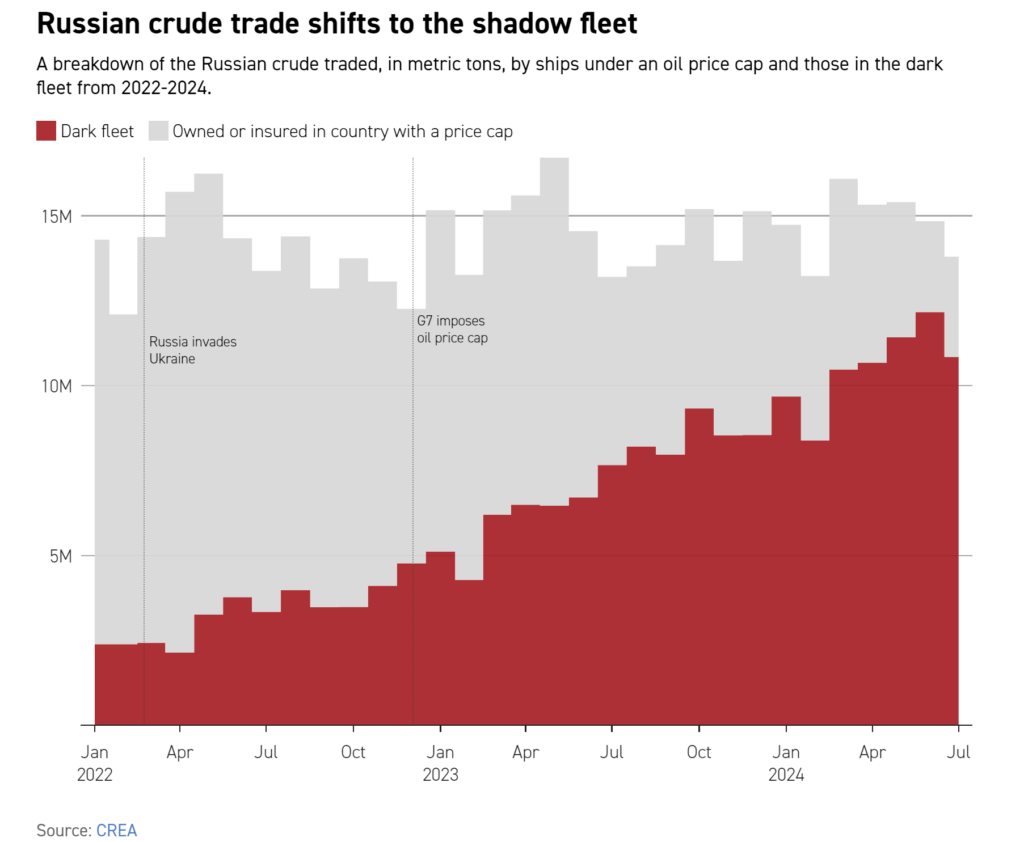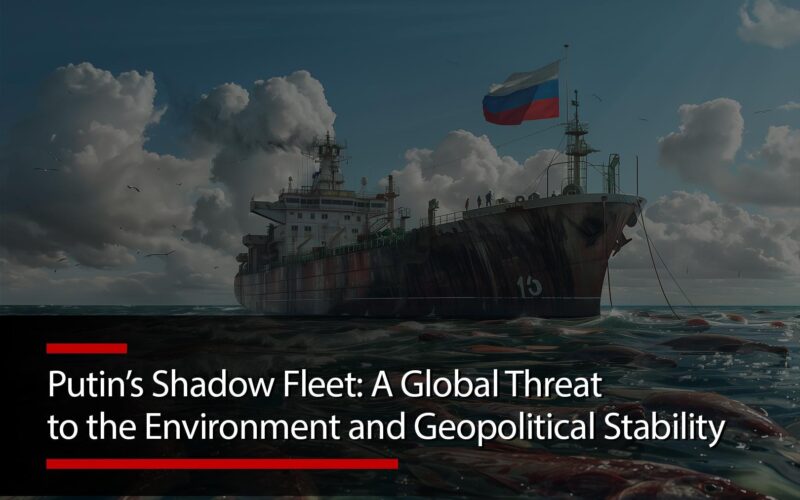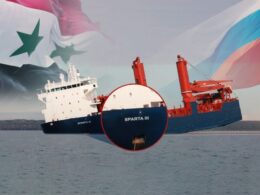The shadow fleet of Russian oil tankers, poses a grave danger to the global environment and geopolitical stability, threatening not just Europe and the United States, but the world at large. These vessels, many of which are aging and poorly maintained, operate under the radar to bypass Western sanctions, leading to serious ecological harm that could escalate into catastrophic consequences.
When sanctions were first imposed on Russian oil in 2022, the goal was clear: to cut off a critical financial artery for the Kremlin, which heavily depends on oil and gas revenues to sustain its economy and war efforts. However, Moscow quickly adapted, employing deceptive tactics to evade sanctions. It rebranded its crude oil, obfuscated tanker ownership through a web of shell companies, and amassed a clandestine fleet of over 600 vessels. This “shadow fleet,” similar to methods used by Iran and Venezuela, operates beyond international scrutiny, circumventing price caps and other measures aimed at curbing Russian oil exports.

One alarming incident illustrates the potential risks. In March, British coast guards discovered a 23-kilometer oil slick off the Scottish coast. A tanker named Innova, hauling a million barrels of sanctioned Russian oil to India. Despite the evidence, no further action was taken, and Innova, like many others in this shadow fleet, continues to operate unpunished, contributing to Russia’s war chest even as the war in Ukraine rages on.
These ships are high-risk by any standard. With no proper insurance, hidden ownership, and many surpassing 15 years in age, they are prone to technical malfunctions that compromise their steering, structural integrity, and overall safety. Investigations have revealed at least nine incidents of these vessels spilling oil into the ocean since 2021. Using satellite imagery and shipping data, analysts traced these environmental hazards to various regions—from Southeast Asia to Southern Europe to the Americas.
The danger extends beyond environmental degradation. These tankers traverse busy trade routes like the Red Sea and the Panama Canal, where any major accident could disrupt international commerce. A significant spill or collision could cause a logistical crisis, closing vital shipping corridors and incurring monumental cleanup costs, often falling on the taxpayers of affected coastal countries. Since the vessels are usually uninsured, there’s little accountability, making legal or financial recourse difficult.
Wildlife and ecosystems are also at great risk. Oil spills devastate marine life, contaminate seafood, and hinder fish reproduction, leading to long-term ecological consequences. In some cases, cleanup efforts themselves can exacerbate the problem by introducing further harmful chemicals into the environment.
The collision risk is no less dire. Just this past July, a Russian shadow fleet tanker collided with another vessel in Malaysian waters, resulting in a fire aboard both ships. Incidents like these underscore the urgent need for decisive action.
The European Union, the United States, and their allies must address the growing threat posed by these rogue vessels. It is imperative to strengthen enforcement mechanisms and close the loopholes that allow these tankers to operate with impunity. Enhanced satellite monitoring, tighter regulations on ownership transparency, and cooperation among global maritime authorities can curb the shadow fleet’s activities before a larger disaster strikes. If unregulated, this fleet could become a ticking time bomb, capable of triggering environmental and economic disasters on an international scale.








